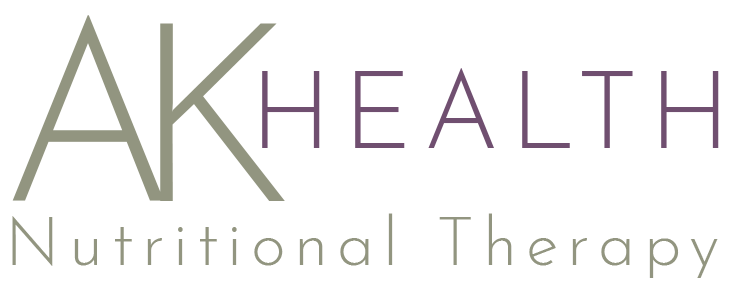Achieving long-term health and energy is a balancing act. Quite simply, what goes on in your mind may have as much of an impact as the food and supplements you feed your body.
Many studies have been conducted on the mind-body connection and how it can affect our immune system and hormonal balance. What we know for sure is that a positive attitude works – when we nurture it.
Wholesome food, avoiding sugar and toxins are obvious tools for great health but how can you nurture positive thinking and manage stress?
Research suggests that exercise, sufficient sleep, controlling negative thoughts and building a strong social support are effective ways to manage cortisol – our stress hormone – and boost immunity. Therefore, paying attention to your thoughts and feelings is as vital as drinking enough water and avoiding junk food.
Winning ways to promote good mind-body health are:
1. MOVE – ENJOY NATURE
The release of endorphins – the happiness hormones – during exercise promotes a sense of wellbeing, which has the added benefit of boosting your immune system.
During exercise, the lymphatic system – a network of tissues and organs that helps your body eliminate toxins and waste – is mobilised. Its main role is to transport lymph fluid, which contains infection-fighting white blood cells. Unlike blood, which is pumped through our body by the heart, lymph fluid only moves when you do.
Spending time in nature, walking, running or doing any other muscle-moving activity also dramatically reduces stress by ‘working off steam’ when you are upset or angry. This releases endorphins and gives your body a natural mood boost, resulting in reduced cortisol levels, which in turn benefits your immune system.
2. GET ENOUGH SLEEP
According to a study by the American Psychological Association, stress keeps more than 40% of adults awake at night. We have an internal body clock which governs our sleep-wake cycle, which is called the circadian rhythm and follows the day-night cycle. All body systems including digestion, detoxification and hormonal balance need to be “in-synch” for optimal health. Research suggests that following the recommendations below promote a healthy circadian rhythm:
- Getting exposure to natural daylight in the mornings by opening the curtains wide, taking a morning walk or having breakfast by the window.
- Enjoying caffeine before noon.
- Avoiding alcohol in the evening. It disrupts sleep, thus not giving the body time to repair.
- Finishing the evening meal by 7pm.
- Turning digital screens off by 9pm and turning in at the same time each evening.
- Having a relaxing bath in the evening.
The more of these recommendations you can manage, the more you synchronise with your body clock which means that you may send less stress signals to your brain.
3. FOCUS ON SELF-CARE
Make an effort to do something nice for yourself every day. Neglecting your own needs can add unnecessary stress to your body, as anger and resentment may build up over time, which can result in increased vulnerability to illness.
If you battle with guilt when you take an hour off to read, go for a walk, or have a coffee with a friend, remember the oxyen mask in the aeroplane. You need to put in on yourself first before putting it on someone else. It is the same with your energy – make sure that you take care of yourself first so that you can then dedicate your energy to the needs of others, be it at work, with your children and/or elderly parents.
4. MINDFULNESS
Practicing mindfulness in the form of meditation or yoga supports the immune system. Mindfulness is the practice of focusing your awareness on the present moment, which allows you to recognise feelings, thoughts and bodily sensations. Studies have shown that people who practised mindfulness through meditation or yoga present with fewer illnesses and take fewer sick days. Researchers therefore concluded that practicing mindfulness might reduce the physical effects of stress, thus boosting your energy and helping your immune system function properly.
5. IT TAKES A VILLAGE…
Building strong social connections has proven to provide psychological and physiological benefits by creating “stress buffers”. Whether you are an introvert or extrovert, having a ‘support group’ – no matter how big or small – can alleviate the sense of having to cope alone. Sharing problems or concerns with friends or family provides an opportunity to feel heard, which can help you put issues into perspective and allow you to find solutions. Make it a point to reach out to a friend once a day and really try to connect. The support you give to a friend may be given back to you in multiple ways.
“When we get too caught up in the busyness of the world, we lose connection with one another – and ourselves.” – Jack Kornfield, American author and Buddhist mindfulness pioneer.
If you are concerned about your immune system, feel stressed or “out of balance”, I warmly invite you to book in for a free 30-minute session with me to see if a personalised nutrition and lifestyle plan might help. You can book yourself directly into my diary by clicking right here.
REFERENCES
Menzel C, Dennenmoser F, Reese G. Feeling Stressed and Ugly? Leave the City and Visit Nature! An Experiment on Self-and Other-Perceived Stress and Attractiveness Levels. Int J Environ Res Public Health. 2020 Nov 17;17(22):8519. doi: 10.3390/ijerph17228519. PMID: 33212963; PMCID: PMC7698395.
Gothe NP, Keswani RK, McAuley E. Yoga practice improves executive function by attenuating stress levels. Biol Psychol. 2016 Dec;121(Pt A):109-116. doi: 10.1016/j.biopsycho.2016.10.010. Epub 2016 Oct 26. PMID: 27794449.
Zozulya AA, Gabaeva MV, Sokolov OY, Surkina ID, Kost NV. Personality, coping style, and constitutional neuroimmunology. J Immunotoxicol. 2008 Apr;5(2):221-5. doi: 10.1080/15476910802131444. PMID: 18569393.
Gein SV, Baeva TA. Endogenous opioid peptides in regulation of innate immunity cell functions. Biochemistry (Mosc). 2011 Mar;76(3):309-19. doi: 10.1134/s0006297911030035. PMID: 21568865.


